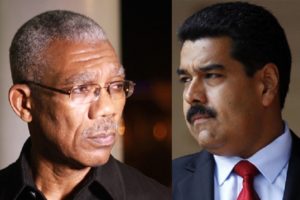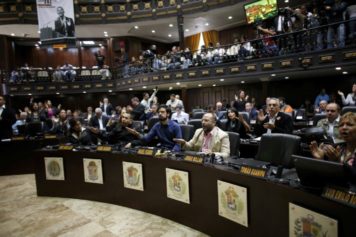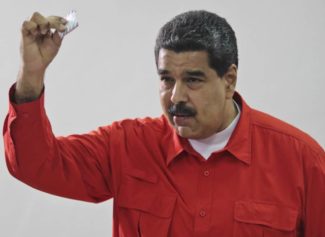GEORGETOWN, Guyana — Following local and regional media reports claiming that the president of Guyana, David Granger has changed his mind about meeting with and holding discussions concerning to the border controversy with Venezuelan President Nicolás Maduro, the government said on Saturday this is not the case.
Granger has made no mention of any “change of mind”, the government said in a statement. He merely said that he is willing to speak with Maduro on a variety of issues of common interest, separate and apart from the border issue.
Granger has noted that there is much else of importance to be discussed, including trade and stability in the region. That position is a longstanding one and is captured in diplomatic and other correspondence between the two countries.
Granger and, subsequently, Maduro approached the United Nations in June and July of this year, respectively, to call for the secretary general to carry out the role set out in the Geneva Agreement. The secretary general has indicated that he is looking into the matter and has asked whether both presidents will be attending the United Nations General Assembly in September. That forum may offer the opportunity for a meeting. Guyana has accepted that approach.
According to the government, subsequently, several other entities have also offered to mediate in the matter, apparently acting in response to prompting from Venezuela.
“We appreciate the interest and goodwill; however, solutions do not merely rely on goodwill. It is only a negotiation problem if one assumes that no international law governs the issue,” the government said.
The government sought to clarify what it described as several misconceptions on the part of the media in relation to this issue as follows:
1. Many offers seem to start from fictitious provisions in the Geneva Agreement or unsubstantiated assertions like those of Mr Mallet-Provost about the circumstances surrounding the Arbitral Award which established the borders. Many reports are obviously untrue, including one today (Saturday, August 8) to the effect that Venezuela has been challenging the boundaries since 1899 or that the dispute has run for over 100 years. In fact, Venezuela participated in the demarcation of the border between 1901 and 1905 and made no challenge to that boundary until 1962 and 1966 as Guyana was about to become independent. In other words, that border had been unchanged and unchallenged for over 60 years.
2. Over the last few days there have also been reports to the effect that Venezuela approached the United Nations Secretary General to have the Good Offices process implemented in keeping with the Geneva Agreement whilst Guyana has refused to do so and wants to go straight to the International Court of Justice. In fact, the Geneva Agreement makes no mention of the Good Offices process. Obviously therefore, the Good Offices process neither requires the agreement of both parties in order to end its use.
Read more at caribbeannewsnow.com


